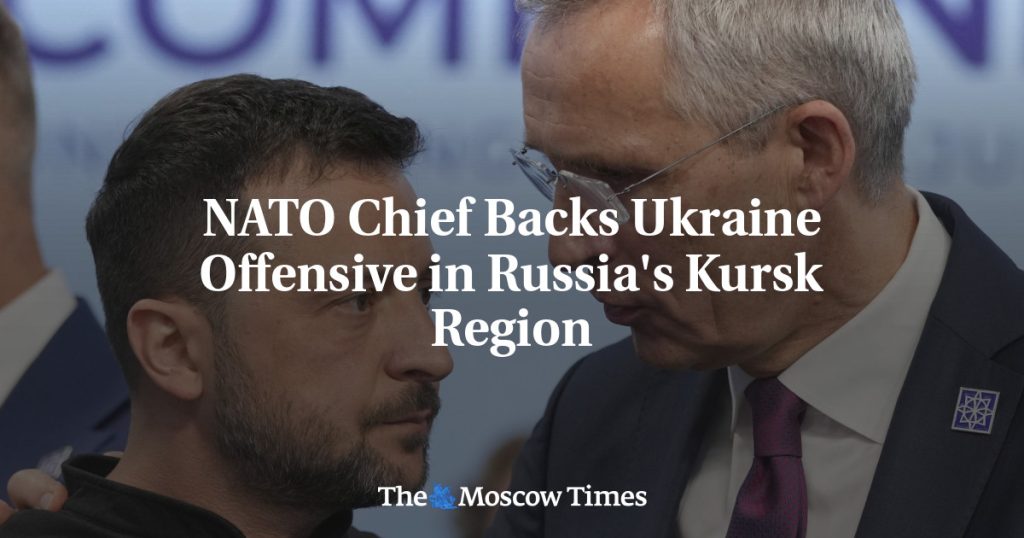Ukraine launched a surprise offensive into Russia’s Kursk border region on August 6 in an act of self-defense, according to NATO chief Jens Stoltenberg. The offensive caught the Kremlin off guard, with Kyiv claiming to have captured dozens of settlements and over 1,200 square kilometers of territory. Stoltenberg emphasized that Ukraine has the right to defend itself under international law, and the Russian soldiers, tanks, and bases in the Kursk region are considered legitimate targets. The offensive also surprised NATO allies, as Ukraine did not share its planning with the Western military alliance, and NATO played no role in the operation.
Despite the lack of coordination with NATO, Germany remains committed to supporting Ukraine as its largest European military donor and second-largest worldwide. However, Chancellor Olaf Scholz’s government faced criticism for planning cuts to its aid to Kyiv in the next year’s budget. Despite this, Scholz has assured that Germany will continue to provide the Ukrainian military with the necessary equipment to combat Russian aggression. The Kursk offensive did not significantly change the situation on the front line in eastern Ukraine, where Russia is still claiming incremental gains, including the capture of three villages on Friday.
Ukrainian President Volodymyr Zelensky has acknowledged the challenging situation near the strategic hub of Pokrovsk in the Donetsk region, where Russian troops are approaching. Zelensky’s army faces difficulties as they try to defend against Russian advances and maintain control of the region. Despite the challenges, Ukraine is determined to protect its territorial integrity and resist Russian aggression with the support of allies like Germany. The conflict in eastern Ukraine continues to escalate, with both sides vying for control over key areas and resources.
The ongoing conflict between Ukraine and Russia has raised concerns among NATO members about the escalating violence and potential for further destabilization in the region. Stoltenberg emphasized Ukraine’s right to self-defense and condemned Russia’s military presence in the Kursk region. The lack of coordination between Ukraine and NATO highlights the challenges of responding to Russian aggression in Eastern Europe and the need for increased cooperation among allies. As the situation in Ukraine remains volatile, it is crucial for NATO and its member states to support Ukraine in its efforts to defend against Russian incursions and protect its sovereignty.
The Kursk offensive and subsequent developments underscore the complex and volatile nature of the conflict in Eastern Europe, with Ukraine at the forefront of the crisis. Russia’s ongoing aggression in the region poses a significant threat to regional stability and has drawn condemnation from NATO and its allies. Ukraine’s determination to defend itself against Russian incursions highlights the country’s commitment to sovereignty and territorial integrity. As the conflict continues to unfold, it is essential for international actors to support Ukraine in its efforts to combat Russian aggression and restore peace and stability to the region. The situation in Ukraine remains fluid and unpredictable, with the potential for further escalation if diplomatic efforts fail to de-escalate tensions between Russia and Ukraine.














